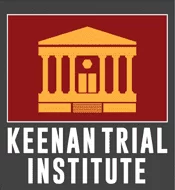Call For A Free Consultation
415-897-4801
Novato Corporate Office (Mailing Address):
10 Commercial Blvd #206 Novato, CA 94949
Offices Located In San Francisco, Oakland, San Jose, Walnut Creek, Pleasanton, Santa Rosa, Napa, Redwood City, Sacramento and Newark
Pediatric Traumatic Brain Injuries: Protecting the Rights of Young Victims
Traumatic brain injuries (TBIs) in children can have devastating effects on their development and quality of life. When a TBI occurs due to the negligence of another party, it is crucial that the injured child receives proper medical care and that their legal rights are protected. This article provides an overview of pediatric TBIs, how to identify them, treatments and recovery, and how an experienced personal injury attorney can help ensure young victims get the compensation they deserve.
What is a Traumatic Brain Injury?
A traumatic brain injury refers to damage to the brain resulting from an external physical force such as a bump, blow, jolt, or penetrating injury. Not all blows or jolts to the head result in a TBI. The severity can range from mild to severe, based on factors such as the nature of injury, part of the brain affected, and length of unconsciousness or amnesia.
In children, even mild TBIs can be serious as the brain is still developing. The frontal lobes, responsible for emotions, learning, and behavior, continue to develop into the child’s 20s. As such, an injury can interrupt key processes and have lasting effects.
Causes and Risk Factors for Pediatric TBIs
There are two main categories of traumatic brain injuries: closed head injuries and penetrating injuries.
Closed head injuries occur when the head suddenly moves back and forth or is impacted, causing the brain to bounce around or twist within the skull. This can happen even without direct impact to the head. Common causes include:
- Falls – the leading cause of TBIs in infants and young children
- Motor vehicle accidents – a leading cause in older children
- Accidental impacts – e.g. from sports or playground equipment
- Physical child abuse – e.g. violent shaking of a baby
Penetrating injuries occur when an object pierces through the skull and enters the brain tissue. This could be caused by high impact collisions, gunshot wounds, or fragments from an explosive device.
Factors that can increase a child’s risk for TBI include:
- Being male – boys are more likely to engage in high-risk activities
- Being a teen – risk-taking behaviors increase
- Participating in contact sports such as football, boxing, or hockey
- Lack of safety practices – e.g. not wearing helmets during sports or activities
Signs and Symptoms of Pediatric TBIs
It is critical to recognize the signs of TBI early so that a child can receive prompt emergency care. However, symptoms can take time to appear and can easily be overlooked initially.
Signs to look out for include:
Mild TBI:
- Headache
- Nausea
- Vomiting
- Dizziness
- Fatigue
- Blurred vision
- Sensitivity to light or noise
- Difficulty concentrating or remembering
- Feeling dazed
- Mood changes – increased agitation or irritability
Moderate to Severe TBI:
- Loss of consciousness
- Seizures
- Dilated pupils
- Slurred speech
- Weakness or numbness in arms/legs
- Repeated vomiting
- Blood or clear fluid leaking from nose/ears
- Unequal pupil size
- Decreased or irregular breathing
- Loss of bowel/bladder control
Any of these signs following an injury to the head or body should be evaluated by a doctor as soon as possible. Seek emergency care if symptoms are severe, get worse, or continue for more than 2-3 days.
Diagnosis and Treatment for Pediatric TBIs
To diagnose a TBI, doctors will evaluate the nature of the injury and the symptoms present, and perform examinations to assess things like the child’s vision, balance, coordination, and cognitive function. Scans like CT or MRI can help detect internal damage, bruising, or bleeding in the brain.
Treatment focuses on monitoring and managing symptoms and promoting healing. This can involve:
- Hospitalization – for close observation and to manage any life-threatening complications like swelling or fluid build-up in the brain.
- Medications – to help relieve headaches, nausea, insomnia, and other issues that interfere with recovery.
- Rehabilitation – physical, occupational, speech, and behavioral therapies help strengthen the body, rebuild skills and coordination, and support emotional regulation and development.
- Educational support – to assist with any learning or behavioral challenges resulting from the injury. An IEP may be developed for school-aged children depending on the severity of impairment.
- Assistive technology and devices – to help compensate for any residual disability or deficits.
The recovery process varies significantly depending on factors like the child’s age, area of the brain impacted, and severity. Effects and deficits may only become fully apparent as the child gets older. Ongoing monitoring and support are key to maximizing recovery.
Long-term Consequences of Pediatric TBIs
While children are resilient, traumatic brain injuries can have lasting effects in all aspects of life:
Physical:
- Headaches, dizziness, or fatigue
- Impaired movement and coordination
- Hearing/vision problems
- Sleep disturbances
- Higher risk of epilepsy or seizures
Cognitive:
- Difficulty concentrating, learning, or retaining information
- Delayed language, reading, and speech skills
- Impulsivity and difficulties with judgment
- Slower processing speed
Emotional & Behavioral:
- Irritability, anxiety, depression
- Personality changes
- Difficulty regulating emotions and behavior
- Increased aggression
Social:
- Difficulty perceiving social cues
- Impaired communication/language skills
- Isolation from peers due to deficits
These issues can significantly impact a child’s quality of life and functional abilities at home, in school, and in relationships. Ongoing rehabilitation and support services are crucial.
Legal Action Can Help Young TBI Victims and Their Families
The costs of treatment, care, and support for a pediatric TBI can be astronomical, especially given the potential lifelong impacts. When another party’s negligence or wrongdoing is responsible for the injury, it is important for the injured child’s family to take legal action.
An experienced personal injury attorney can help families in the following ways:
- Conduct a thorough investigation to establish liability and build the strongest case possible.
- Work with medical experts and professionals to fully capture the extent of injuries, treatment, and projected costs associated with the TBI.
- Negotiate on the family’s behalf to secure a substantial settlement that provides for the child’s medical expenses, rehabilitation costs, educational and accommodation needs, loss of future earnings, and other damages.
- Take the case to trial if a satisfactory settlement cannot be reached through negotiation.
- Allow the family to focus their time and emotional energy on caring for the injured child without the additional stress of complex legal matters.
No amount of money can undo a devastating brain injury and the disruption it causes an innocent young victim and their family. However, securing adequate compensation can help provide the long-term treatment and support the child urgently needs while holding the negligent party legally accountable.
If your child has suffered a traumatic brain injury due to another’s negligence, please reach out today for a free case review. Our experienced personal injury attorneys will protect your rights and work tirelessly so your child has the resources they need to maximize their recovery and quality of life.
Visit our offices at:
- 10 Commercial Blvd, #206 Novato, CA 94949
- 75 Broadway #202, San Francisco, CA 94111
- 3558 Round Barn Blvd, Suite 200, Santa Rosa, CA 95403
Or call us today for a free consultation on (415) 897-4801.
© 2025 Rush Injury Law. All Rights Reserved.














